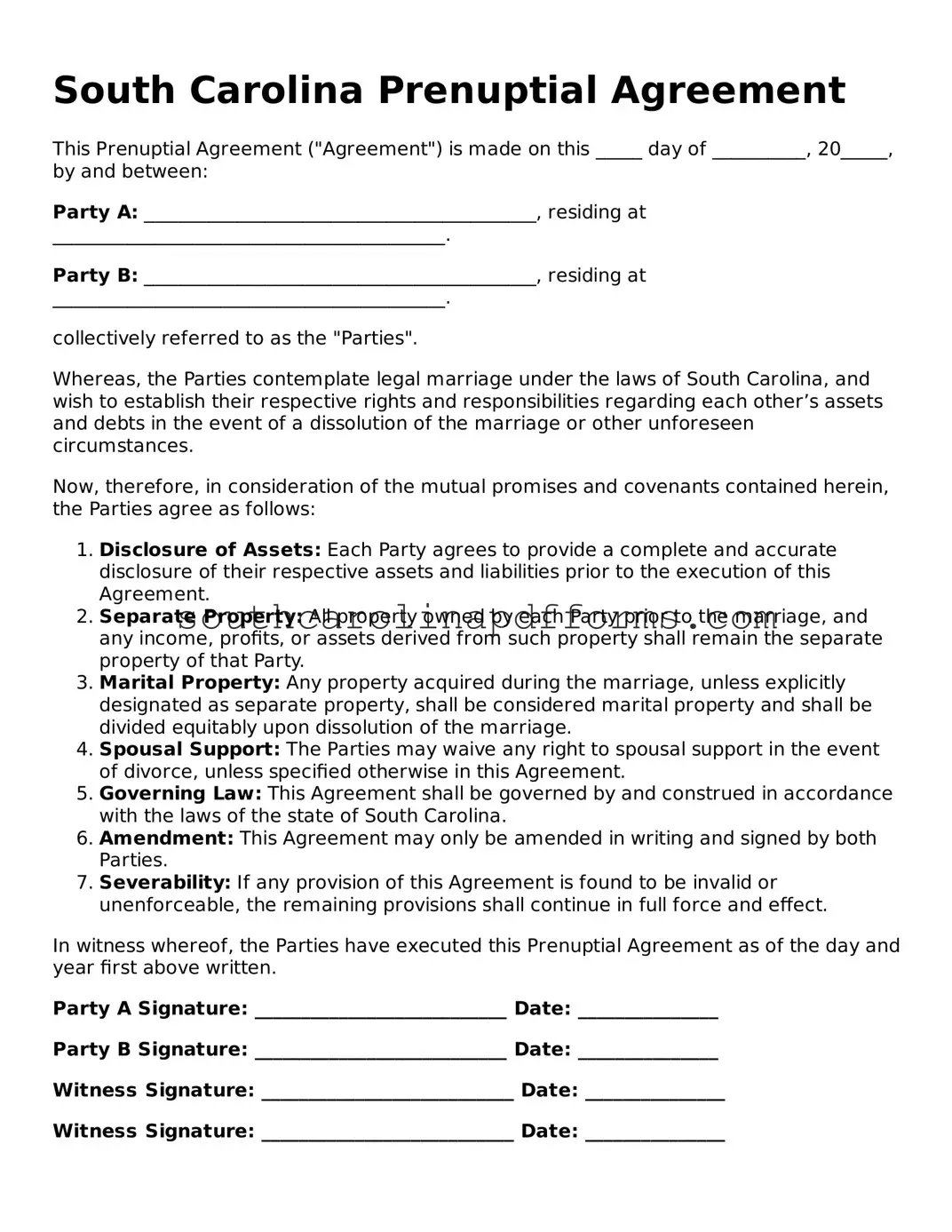In South Carolina, a prenuptial agreement serves as a vital tool for couples planning to marry, allowing them to outline the financial and property arrangements that will govern their relationship both during and after marriage. This legally binding document can address a variety of important aspects, including the division of assets, spousal support, and the management of debts. By creating a prenuptial agreement, couples can clarify their financial expectations and responsibilities, reducing potential conflicts in the event of a divorce or separation. The form typically requires full disclosure of each party's financial situation, ensuring that both individuals enter the agreement with a clear understanding of their rights and obligations. Additionally, the agreement must be signed voluntarily by both parties, free from any coercion, and ideally should be executed well in advance of the wedding date to ensure its enforceability. Understanding the nuances of the South Carolina Prenuptial Agreement form can empower couples to make informed decisions about their financial futures together.
